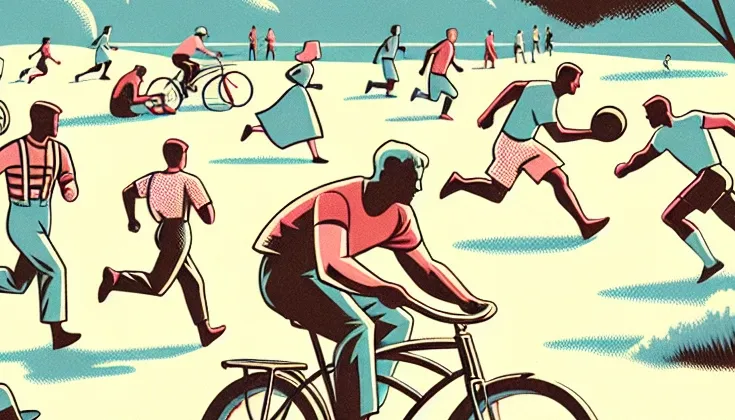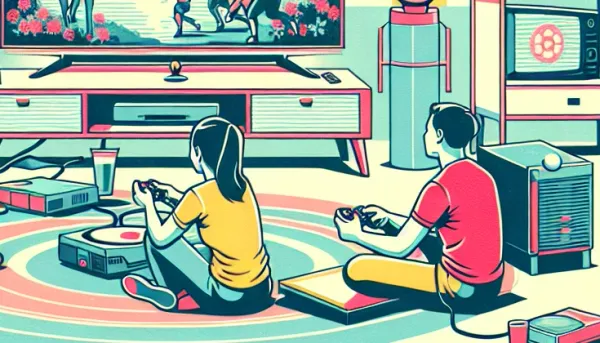Finding Work-Life Balance

In an era where the boundaries between professional goals and personal lives blur, understanding how diverse populations navigate this balance is crucial. At Times Meter, we commit to uncovering the real narratives that millions share across forums from Reddit to LinkedIn—dialogues that often get lost in conventional expert analyses. In this article, we analyze work-life balance stories to reveal evolving perceptions of success, exploring how everyday people across various professions prioritize job satisfaction and manage the complexities of their work and personal lives.
Methodology
Leveraging advanced mixed-methods, we explore the vast digital dialogue of millions of social media posts across networks like Reddit, Twitter, LinkedIn, and various forums and review sites. Through refined Natural Language Processing (NLP) algorithms, we precisely interpret qualitative data. Our writers meticulously hand-select quotes for their thematic depth and resonance. This careful selection, coupled with our commitment to anonymity and authenticity, ensures that quotes are paraphrased to preserve the original dialogue’s integrity while protecting privacy.
The Pursuit of Work-Life Balance

Professionals are increasingly aiming to achieve a balance between their career demands and personal lives. Disconnecting from work during personal time is viewed as essential for overall well-being.
I work in IT and prioritize better work-life balance. The higher position is vacant and offers a higher salary, but the long hours required don't seem worth it.
I prefer focusing on being a Subject Matter Expert and maintaining work-life balance instead of climbing the corporate ladder and facing added stress.
I enjoy my job because it offers great work-life balance, minimal stress, and I have over 14 years of experience in the field.
The first step to understanding work-life balance begins with evaluating the role of work in our lives.
Redefining Success: Beyond Financial Stability

While financial stability and career advancement have traditionally been seen as measures of success, many are now placing greater value on job satisfaction and personal happiness for overall contentment.
I am content with my current role despite earning less than my sister, who has heavier professional commitments.
True contentment comes from being satisfied with your current circumstances.
A colleague is happy with her specialized role that pays $50K; conversely, I choose to work harder for higher earnings. We're both happy with our choices.
This shift illustrates broader societal changes in the integration of work and personal life.
Job Satisfaction Versus High Income

For many, the benefits of job satisfaction surpass those of a higher but more stressful income, particularly in terms of mental health and personal fulfillment.
I'm focusing on enhancing my benefits rather than increasing my income; I'm looking for better perks like remote work and additional time off.
Many are content with a simple life if it's financially feasible. Chasing endless success is like pursuing a capitalist illusion. Strike a balance; live in the present.
Satisfaction with one's current situation signifies everything is in order.
A deeper cultural move towards personal well-being is also becoming apparent.
Cultural Shift Towards Individual Well-Being

Recent trends show a growing focus on personal well-being and life satisfaction over conforming to high-pressure work environments or societal expectations.
In America, we are often judged based on our career success and constantly pushed to be more ambitious. It can be stressful and endless. Take time to be happy with what you have and enjoy life. You can reassess later if needed.
Prioritize living well over mere career progression and choose lifestyle options that align with personal values, such as not having children.
Living in a city like Oregon City is crucial for maintaining a balance between my career, outdoor activities, and overall well-being.
As individual priorities evolve, so too do traditional work arrangements.
Flexible Work Arrangements: Adapting to New Needs

Flexible work schedules and remote options have become critical in supporting better work-life balance, allowing employees to adjust their work environments to fit their personal and family needs.
Working remotely saves commuting time. I'm planning to finish my degree in four years, but considering working part-time or taking extra courses some years.
I work from home with early hours from 6:30 AM to 3:30 PM, maintaining full-time hours.
Flexible arrangements like remote working or adjusted schedules significantly help balance my personal and professional lives.
Balanced lives also depend greatly on strong support systems.
The Role of Support Systems in Balancing Work and Life

A supportive partner or solid family foundation can significantly reduce the pressures of balancing professional and personal responsibilities.
A recent career switch doubled my income and growth opportunities thanks to my supportive husband who manages child care when I travel.
It's reasonable for your husband to expect you at home more, but he should also manage parenting independently.
Switching jobs for more family time was crucial as my former role consumed all my time, shifting more childcare duties to my husband.
These examples underscore the importance of individualized strategies for managing work and life.
Optimizing Personal and Professional Time

Effective time management and setting clear personal-professional boundaries are key for maintaining mental health and productivity.
Struggling to find time for writing due to work and personal commitments, I now use timed writing sessions to boost productivity.
Balancing work, education, and personal life is feasible, especially with work flexibility that allows schoolwork during office hours.
Reevaluate systems that don't serve you; prioritize and delegate based on available time.
Managing our technology use is equally critical.
Navigating Technological Connectivity

The rise of technology has mingled work with personal time, prompting strategies to manage tech usage to protect personal time from work intrusions.
I often wish I were less accessible.
After nearly quitting IT due to overwhelming tech exposure, I now restrict my tech use to work hours and sometimes explore new gadgets on weekends.
To avoid instant messaging pressures, I set a rule to reply within 24 hours and use airplane mode to manage message responses without feeling overwhelmed.
Maintaining in-person interactions is also foundational to our mental health.
Strengthening Social Connections for Mental Health

Active engagement in social and community activities is vital for avoiding isolation and bolstering mental health, enhancing meaningful relationships.
Shopping acts as a social activity and exercise, helping me manage social anxiety.
My evenings include film club, basketball, running, family game night, and gaming with friends.
Participating in local entertainment like bowling, live music, and enjoying outdoor activities like night hiking and kayaking enrich my social life.
Engagement with nature is also crucial.
The Value of Outdoor Activities

Pursuing outdoor activities alleviates work stress and significantly enhances personal growth and life quality.
Aside from work, I cherish living life fully through participating in outdoor activities.
Although I sell high-tech products, unwinding with activities like winter backpacking and enjoying simple pleasures like a meal outdoors is invaluable.
I enjoy a balanced life with weekends off, which gives me plenty of time for my mountaineering activities.
Conclusion

As demonstrated, achieving work-life balance is a highly personalized journey, influenced by individual priorities, career choices, and lifestyle preferences. This exploration reveals a shift towards valuing job satisfaction, mental well-being, and quality of life over traditional success metrics like financial stability. Flexible work options and robust personal support networks are pivotal in managing modern professional demands. Moreover, wise technology use and strong social ties are essential for sustaining mental health. Ultimately, the path to work-life balance involves making informed, value-aligned choices that enrich our lives both professionally and personally, emphasizing a broader cultural shift towards prioritizing personal well-being and redefining success in modern society.



